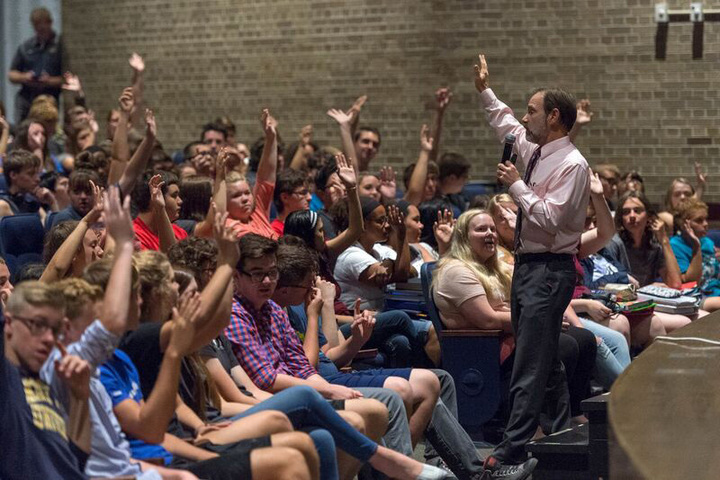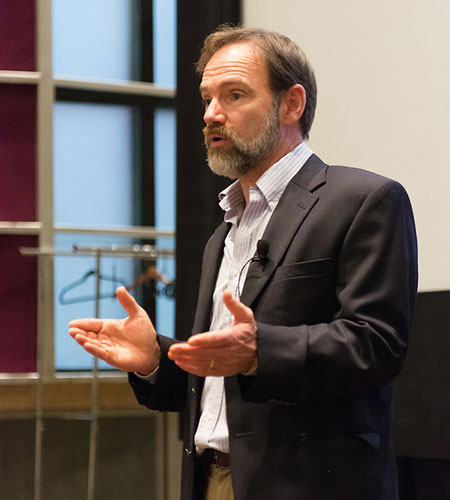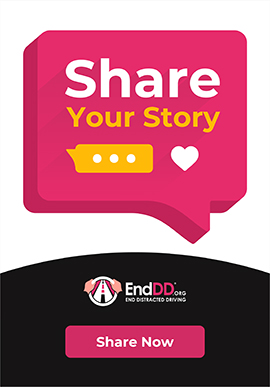 Reprinted from The Huffington Post, March 13, 2017 –
Reprinted from The Huffington Post, March 13, 2017 –
Since my daughter Casey was killed by a distracted driver in 2009, I have worked to develop distracted driving presentations for all age groups: high school to college students and “adults.” Through my organization, EndDD.org (End Distracted Driving), over the past seven years I have personally given presentations to more than 100,000 teens and college students and about 20,000 adults over the age of 40. I have also worked directly with high school and college students on specific projects. These students are affiliated with the premiere student leadership organizations in the country, SADD, FCCLA and NOYS. Some of these students have become part of an informal advisory committee for me. I run ideas by them, listen to their thoughts and in exchange, I am better able to communicate safe driving messages to students. I have nothing but respect for my millennial think-tank, and the more than 100,000 students I have given presentations to. To what may be a surprise for some, I find they are hard-working, polite, engaging, curious and sincerely committed to helping others.
My audiences are composed of millennials, those born between 1980 and 1995, and Generation Z, born after 1995. The millennials that I speak with are on the younger side of that generation, mostly now between the ages of 22 and 27. My daughter Casey was a millennial and would be 29. My son Brett is also a millennial, and he is 27 years old. My Generation Z audiences are now between the ages of 15 and 22.
My generation, the baby boomers, often describe millennials unflatteringly as “selfish, entitled and addicted to technology.” I hear this time and time again. I don’t think we have gotten around to refining our disparaging remarks for Generation Z members and just lump them in with millennials. But, are our criticisms fair, or accurate?
What does research tell us about millennials? In a 2015 Ernest and Young Survey, “Global generations: A global study on work-life challenges across generations,” millennials were most likely to say that they would take a pay cut, forego a promotion or be willing to move to manage work-life demands better. Millennials try to set limits on the demands of work and proactively carve out time for personal activities and needs. Most millennials do not see a career as working for one employer their entire lives. Managers may view this as being lazy, or even disloyal. But millennials expect to change jobs frequently and work-life balance and flexibility are common motivators for changing jobs. In addition to these job hops, millennials also may make entire career shifts. Do these views, and older generations’ perceptions that they lack “our” work ethic, make millennials “lazy?” I don’t think so, just different. For years there has been lip service paid to trying to achieve a better work-life balance, but millennials are actually taking steps to make that happen.
And what about the perception that millennials are selfish and entitled? In interacting with high school and college students, I am amazed by how many do volunteer work. I specifically ask that question when I speak with students and easily 60-70 percent of those in attendance will raise their hands. According to the 2014 Case Foundation’s Millennial Impact Report a majority of Americans, including millennials themselves, describe their generation as “selfish” and “entitled.” But, 70 percent of millennials spent at least an hour volunteering their time to a cause they cared about, and more than one-third volunteered 11 hours or more. Forty-five percent participated in a company-wide volunteer day. Thirty-two percent used paid time off to volunteer and 16 percent took unpaid time off to volunteer. The report also found that 84 percent made a charitable donation in 2014. A 2014 Nielsen report, “Millennials: Breaking the Myths,” offered similar data. In 2011, 75 percent made a donation to a charity, 71 percent raised money for one, and 57 percent volunteered—“more than any other generation,” the report says. As compared with prior generations millennials are more committed to social change and, so much so in fact, that marketers are analyzing how to reach millennial consumers through their heightened social consciousness. See the SpencerHall 2015 report “Why Millennials’ Socially Conscious Mindset Is Crucial to Your Innovation Strategy.” These findings seem to belie the opinion that millennials are selfish.
Melissa Gomez, Ph.D., and Principal of MMG Jury Consulting Inc., has studied juror beliefs and found that when asked what was more important in rendering a decision, following the judge’s instructions or doing what the juror believed was fair, a stark contrast exists between millennials and other generations. Sixty-five percent of millennials felt doing what was fair most important, while less than half of non-millennials (those over the age of 35) felt fairness was most important. I have asked that same question to predominately those under the age of 25 and found the results even more biased towards fairness. There is a decided appeal to me in the belief that strict adherence to rules should not interfere in doing what is right.
I have more than 300 volunteer speakers across the country giving our EndDD.org student presentations. It is crucial that they treat young people with respect. If someone feels young people are “lazy and entitled,” won’t those views come across in their presentation? Isn’t respect for one’s audience a prerequisite for effectively communicating with that audience? What about the credibility of the speaker? I often hear young people use the term “hypocrite” to describe parents, police officers and teachers who try to lecture students not to drive distracted. Distracted driving is not just a teen problem, it is ubiquitous among most age groups and generations and young people are acutely aware of that. That is why speakers must tell audiences about their own distracted driving habits and what they are doing to drive without distraction. Absent that self-disclosure speakers will have difficulty being perceived as credible.
Far from being lazy, selfish and entitled I find high school and college students highly motivated and sincerely wanting to make a positive difference in the world. Are they “addicted to technology?” Certainly, technology plays an important role in their lives – as it does for most of us today. But part of being connected is caring about friends and using those connections to get others involved with charitable work and projects and causes that benefit others.
With respect to my traffic safety efforts I see students across the country taking the lead in working to keep their friends, and even their parents, safe from distracted driving. More than 70 percent of the students I speak with will publicly admit that their moms and dads drive distracted. Many students tell me that since their parents drive distracted it is up to them, as big brothers and sisters, to teach younger siblings to drive safely. Young people are more open to discussing ideas and changing their points of view, more curious and less rigid than their parents. I am much more likely to hear excuses and rationalizations from parents attempting to minimize their distracted driving behaviors than from students.
I am excited each and every day to work with today’s young people to help them be safe and to help them keep their friends safe. I am optimistic that when treated with respect and given the right messages, young people will change the way all of us think about distracted driving and save many lives.




